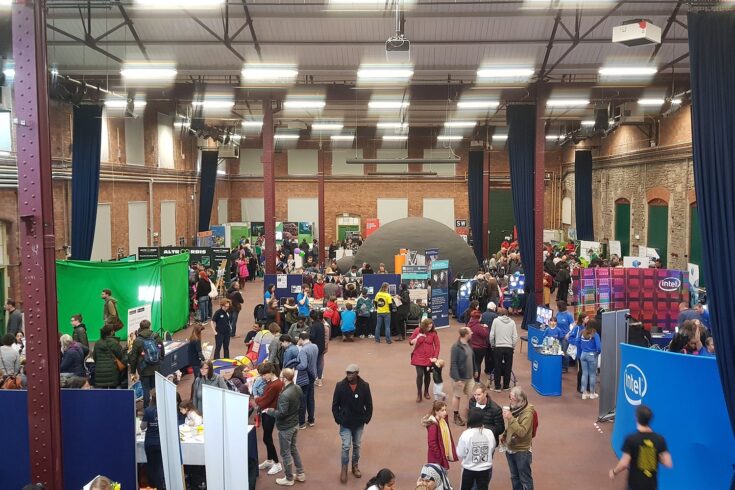UKRI’s public engagement strategy and plans are based on research, evidence and stakeholder insight. Below are a selection of reports and outputs that support UKRI’s new public engagement strategy.
Involving communities in research and innovation
The Young Foundation report, An equitable future for research and innovation, considers how to improve the ways we produce, use and communicate knowledge across the UK. It has informed our approach to how we can better involve community groups and organisations across the UK.
Valuing and enabling citizen science: lessons from the Citizen Science Exploration Grant programme, a report by the Institute for Community Studies, provides insights into citizen science and participatory research approaches as an expanding methodology for involving people in research, and how best to support it. See Citizen Science – The Young Foundation.
Mindsets for Museums of the Future, research by The Liminal Space, looks at how to address underlying issues in the museums sector, including problems relating to access, diversity and a failure to innovate. This informs our support for engaging underrepresented groups with research and innovation through museums and science centres.
UKRI funds the British Science Association’s Community Grants, Community Leaders and Community Buddy programme. The report, The impact of the British Science Association’s community engagement programmes, helps us to better understand the experiences of individuals who participated in the programmes and the impacts it has had on them.
The British Science Association, with Science Ceilidh, also provide the Highlands and Islands Climate Change Community Grant. The Highlands and Islands Climate Change Community Programme evaluation report is informing our understanding of how communities can work with researchers on addressing local climate change issues.
Supporting youth engagement with research and innovation
The report, Supporting all young people through UK informal STEM learning, shares reflections and ideas from University College London (UCL) Faculty of Education and Society to support funders and policymakers interested in diversity and inclusion in STEM learning provision. The conclusions contain ideas for better supporting excluded young people and communities in informal STEM learning.
We commissioned SQW to review the STEM Ambassador programme, asking:
- how effective it has been
- how it has affected the STEM engagement sector
The conclusions in the STEM Ambassador programme review: summary report, include some ideas for the future of the programme.
The scoping study, Improving the evaluation of youth engagement with STEM, by Dr Asimina Vergou, used a review of reports and papers, alongside interviews with experts to compile a list of 10 recommendations for improving evaluation in the sector. Ideas centre on:
- collaboration
- shared objectives and measures
- agreed methodologies and tools
- suggestions for targeted funding and a long-term approach
Improving public dialogue
We commissioned the School of International Futures to review our flagship Sciencewise public dialogue programme and provide recommendations for future models, outlined in the 2020 Sciencewise Review.
Embedding public engagement in universities
The report, The Engaged University: turning words into action has informed how we support universities to embed public engagement in three key areas:
- how universities are making and stating the case for public engagement and articulating its value
- how universities are turning strategy into practice
- how universities are resourcing public engagement – both people and programmes
Community knowledge fund
NERC conducted a public dialogue in 2022 to 2023 to understand where public input has the most potential to shape environmental science research agendas. View the summary report at: NERC public dialogue: contemporary issues of environmental science.
Last updated: 16 May 2024

